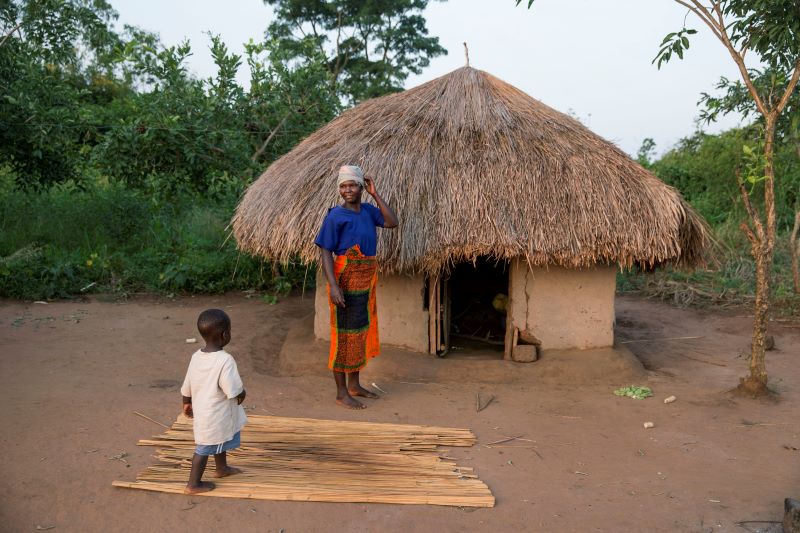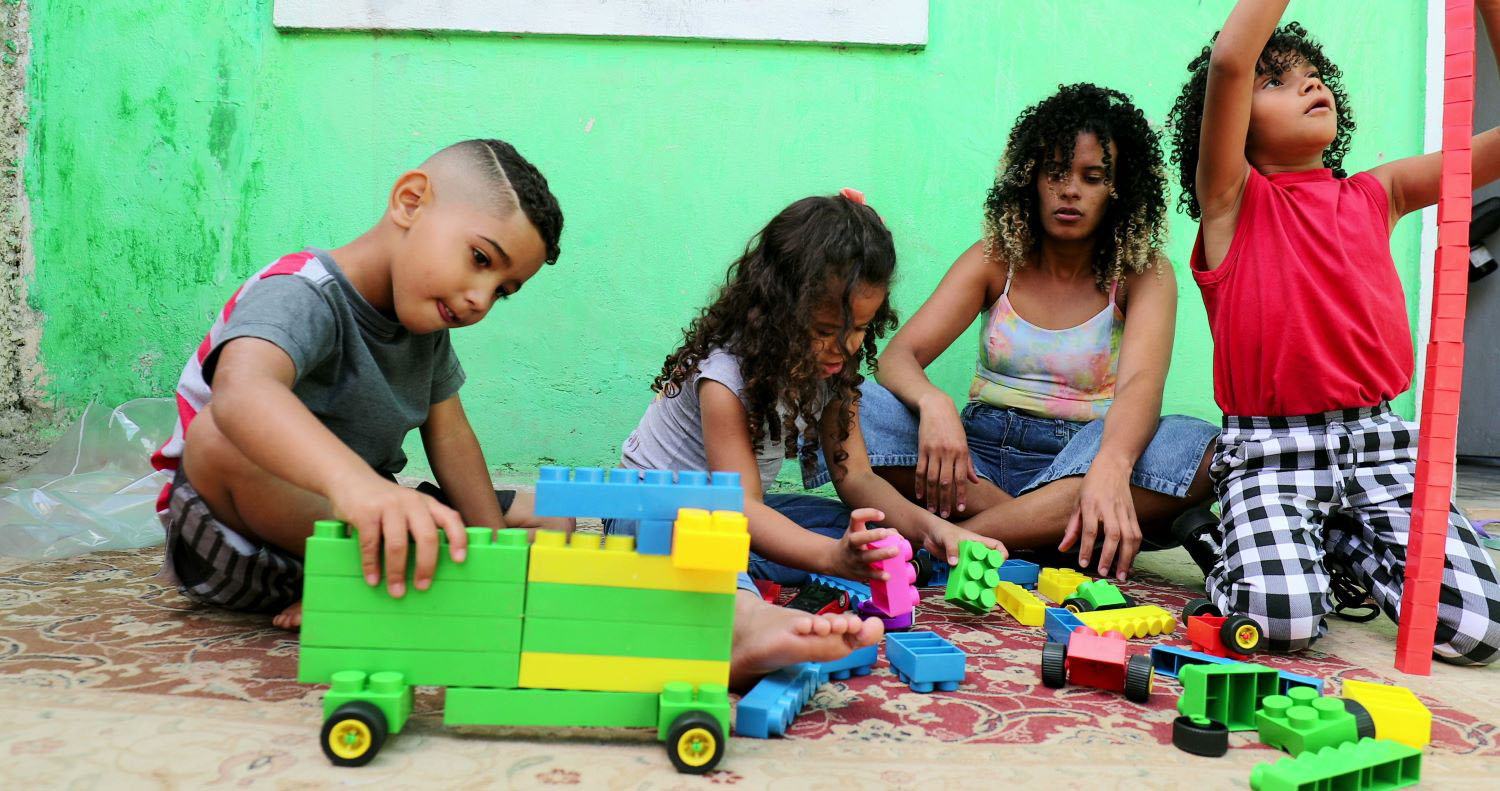The topic of childcare is receiving some much needed attention. For decades, working families from Dhaka to Durbin have faced the challenge of finding quality affordable childcare. But the problem was hidden away, obscured behind old images that never fit the realities of women’s widespread labor force participation in low- and middle-income countries, nor the need to prioritize early childhood development and associated community and economic opportunities. A growing number of recent reports, along with the reality of women struggling to balance childcare with paid work laid bare during the pandemic, are finally bringing the world’s underinvestment in quality childcare out of the shadows. Now it is time for action.
A Growing Evidence Base to Inform Action
In the lead up to International Women’s Day, the World Bank released a new report by Amanda Devercelli and Frances Beaton-Day, Better Jobs and Brighter Futures: Investing in Childcare to Build Human Capital. The report provides a critical review of why scaling up childcare has the potential to promote pathways to build human capital and increase equity—both core components of a country’s economic development, and a way of ensuring an inclusive recovery from the COVID-induced global recession. The numbers are sobering:
- Over 40 percent of children, or nearly 350 million children below primary school entry age, need childcare but do not have access to it.
- The childcare challenge disproportionately impacts families in low- and middle-income countries, where nearly 8 out of 10 need childcare but do not have access. A child in a low-income country is nearly five times less likely to have access to childcare than a child living in a high-income country.
- It is estimated that 43 million new childcare jobs are needed to meet the current gap in access.
The report’s findings make clear that public sector financing and policy commitment will be needed alongside private sector investment to meet the needs of all children and caregivers in need, especially those in low- and middle-income settings. The market alone cannot provide the scale of childcare necessary to assure universal access to quality care and adequate support for providers.
A second recent report echoes the need to prioritize investment in childcare globally and underscores the profound impact of the pandemic on childcare. In Evidence Review of the Global Childcare Crisis and the Road for Post-Covid-19 Recovery and Resilience, researchers supported by the Growth and Economic Opportunities for Women (GrOW) Initiative conclude:
- The global childcare crisis and its disproportionate impact on women predate the onset of the COVID-19 pandemic. In 2018, 606 million women of working age were unavailable for employment because of childcare responsibilities, compared to 41 million men. The most marginalized women are those hit hardest.
- Now, with schools closed around the world due to the pandemic, women are bearing the brunt of additional childcare responsibilities. In addition, the women-dominated childcare sector is at risk of collapsing given rising financial hardships, lockdowns and fear of exposure to the virus.
These findings are reinforced by policy insights released by WIEGO (Women in Informal Employment: Globalizing and Organizing). In Informal Workers See a Long Road to Recovery Ahead - Unless Governments Act, Sally Roever and Michael Rogan document the hardships that domestic workers, among others working informally, have experienced as a result of the COVID-19 crisis, including a sudden and massive drop in earnings, with limited and uneven support available across countries.
The Moment to Act: Recommendations
Given how investments in quality childcare can help economies recover, support large-scale job creation, and help provide early learning opportunities for children, it is the moment for global action to support this essential service.
In spite of a growing evidence base pointing to the need to invest in childcare globally and resulting benefits, huge gaps in political will, policy attention, and financial investment remain. The COVID-19 Global Gender Response Tracker reflects how few governments, especially those of low-income countries, have addressed care constraints in COVID-19 crisis response and recovery; just 4 percent of all policy measures reflected in the tracker focus on unpaid care. Ongoing analysis by CGD researchers (stay tuned!) confirms the same limited attention to childcare across multilateral and bilateral donor institutions, both before and during the COVID crisis.
We recommend increased investments by multilateral and bilateral donors, as well as foundations and the private sector, to support low- and middle-income countries to:
- Create comprehensive childcare systems that provide enough support to assure affordability to families, quality for children and adequate training and compensation for the childcare workforce. Provide immediate relief to stabilize and grow the health and quality of the childcare sector.
- Build the infrastructure of support for childcare including standards, monitoring and support; linkages to health and nutrition; increased training capacity; home based childcare networks of support; data collection systems and mechanisms to meet the needs of displaced families and children with special needs.
- Launch a rigorous research and innovation agenda to document the evidence of what works for whom, under what conditions, with an emphasis on filling gaps regarding populations underrepresented in the current evidence base (e.g., informal and agricultural workers).
- Support advocacy efforts to build parent and provider voice, and encourage private sector champions for childcare, paid leave and family benefits as public goods that are essential for economic development.
Short-Term Opportunities for Action
Addressing the global childcare crisis will require a holistic approach that mobilizes momentum and investment from both the public and private sectors, and there are concrete opportunities to move the ball forward in the coming year:
- The upcoming Generation Equality Forum is an opportunity for concrete, ambitious action on childcare. The Economic Justice and Rights Action Coalition has just announced a focus on care as its first draft commitment—but rigorous research will need to inform implementation.
- The Biden-Harris Administration has the opportunity to translate its commendable focus on providing affordable childcare domestically into the same focus in its development agenda, recognizing the lack of childcare in low- and middle-income countries as a binding constraint to inclusive development.
- The World Bank (and other regional multilateral development banks (MDBs)) can play an important role in supporting governments to invest in quality childcare to promote inclusive development and poverty reduction, but past IDA replenishment cycles have not focused on childcare, so there is an opportunity to ensure that the momentum around this issue, including the World Bank report’s own findings and recommendations, translates into a priority in the 2021 replenishment cycle.
- 2X Challenge members and other gender lens investors that currently focus on women’s economic empowerment could also consider prioritizing investments in childcare solutions.
Through increased policy attention and financial investment, childcare can move from a problem to an opportunity. It is an opportunity to promote gender equality and education, support families, and build communities and new economies. The moment for bold action is now.
Joan Lombardi, Ph.D. Is a Senior Scholar at the Center for Child and Human Development, Georgetown University.
CGD blog posts reflect the views of the authors, drawing on prior research and experience in their areas of expertise.
CGD is a nonpartisan, independent organization and does not take institutional positions.







